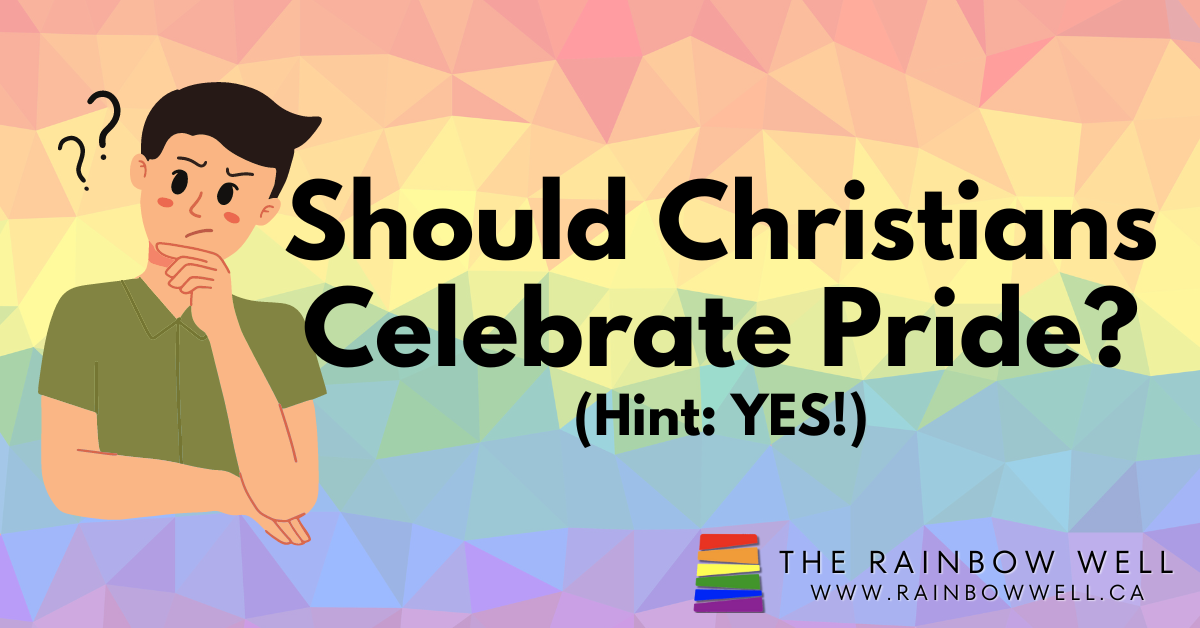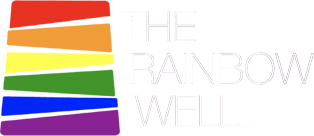Should Christians Celebrate Pride? (Hint: Yes!)

by Jamie Arpin-Ricci
Every year during Pride month, I find myself getting asked some version of the same question by many Christians:
“The Bible says pride is a sin! How can you celebrate it?”
While it is not always asked in good faith, many people genuinely do not know how to reconcile this seeming contradiction, even some 2SLGBTQIA+ folks. So let’s take a little time to break things down to get a better understanding.
What Does The Bible Mean By Pride?
In the Bible, pride is usually seen as a sinful attitude and/or behavior characterized by arrogance and self-exaltation—in other words, a highly elevated opinion of oneself. There are many examples in the Bible, such as: God “detests all the proud of heart” (Proverbs 16:5); “pride goes before destruction” (Proverbs 16:18); “the arrogant will be humbled and brought low” (Isaiah 2:11); and “God opposes the proud” (James 4:6).
Clearly, this kind of pride is problematic. After all, most good people, regardless of religion or creed, would agree that this kind of pride is problematic. The question, then, is this: What does this mean for 2SLGBTQIA+ Pride?
The Wonder of Words
The thing about words is that they are fluid. They can mean different things in different contexts. We know that when a dog “barks” it has nothing to do with the outer layer of a tree trunk. Or that a “bolt” of lightning cannot be used to secure a door shut. Some words can even be both good and bad, depending on the meaning we use. I would not be feeling fine if I received a fine for speeding. You might be having a “riot” at the comedy club until an angry “riot” broke out.
In the same way, if we are honest about it, we have to acknowledge that we use the words “pride” and “proud” in other, more positive ways than the Biblical term. I often tell my kids that I am proud of them when they do a good job on a task. And they, in turn, feel pride at a job well done. In this context, “pride” simply means a deep sense of satisfaction and joy. In other words, we can’t simply equate the meaning of one use of “pride” with another. We have to examine each within its own context.
What Is 2SLGBTQIA+ Pride?
The term “Pride” was adopted by the 2SLGBTQIA+ community following the Stonewall Riots of June 1969, a pivotal event that sparked the modern 2SLGBTQIA+ rights movement. Initially used during the first anniversary march, “Pride” was chosen to counteract the shame and stigma associated with 2SLGBTQIA+ identities, something all too often deeply rooted in religious teaching. Instead, it chose to promote self-respect, dignity, and love.
Over the years, “Pride” has come to symbolize self-acceptance, visibility, and the celebration of diversity within the community. It honours the legacy of the 2SLGBTQIA+ rights movement while serving as a platform for continued advocacy and activism. Today, Pride Month is a global event that commemorates both the progress made and the ongoing fight for equality.
Let’s Celebrate!
To be sure, like any celebration or holiday (even Christian ones), there are expressions of it that not everyone agrees with. The inevitable impact of capitalism can be especially problematic when the movement is co-opted for profit without working for meaningful change. However, if we are fair and consistent with all such events, we can see that there are many expressions that are very, very good.
In short, Pride has been adopted by many as a way of standing in loving and persistent resistance against the power of shame, fear, and hate. Given that the struggle continues—and in many ways has been increasingly difficult—the importance of taking time to highlight our community is not only necessary but arguably a very Christian thing to do.
So, to that end, Happy Pride!
Remember, this Pride month The Rainbow Well needs you! We are looking 40 people willing to commit to $25 a month for one year! That’s less than a dollar a day to put life-saving resources into people’ hands. Click here for details!

